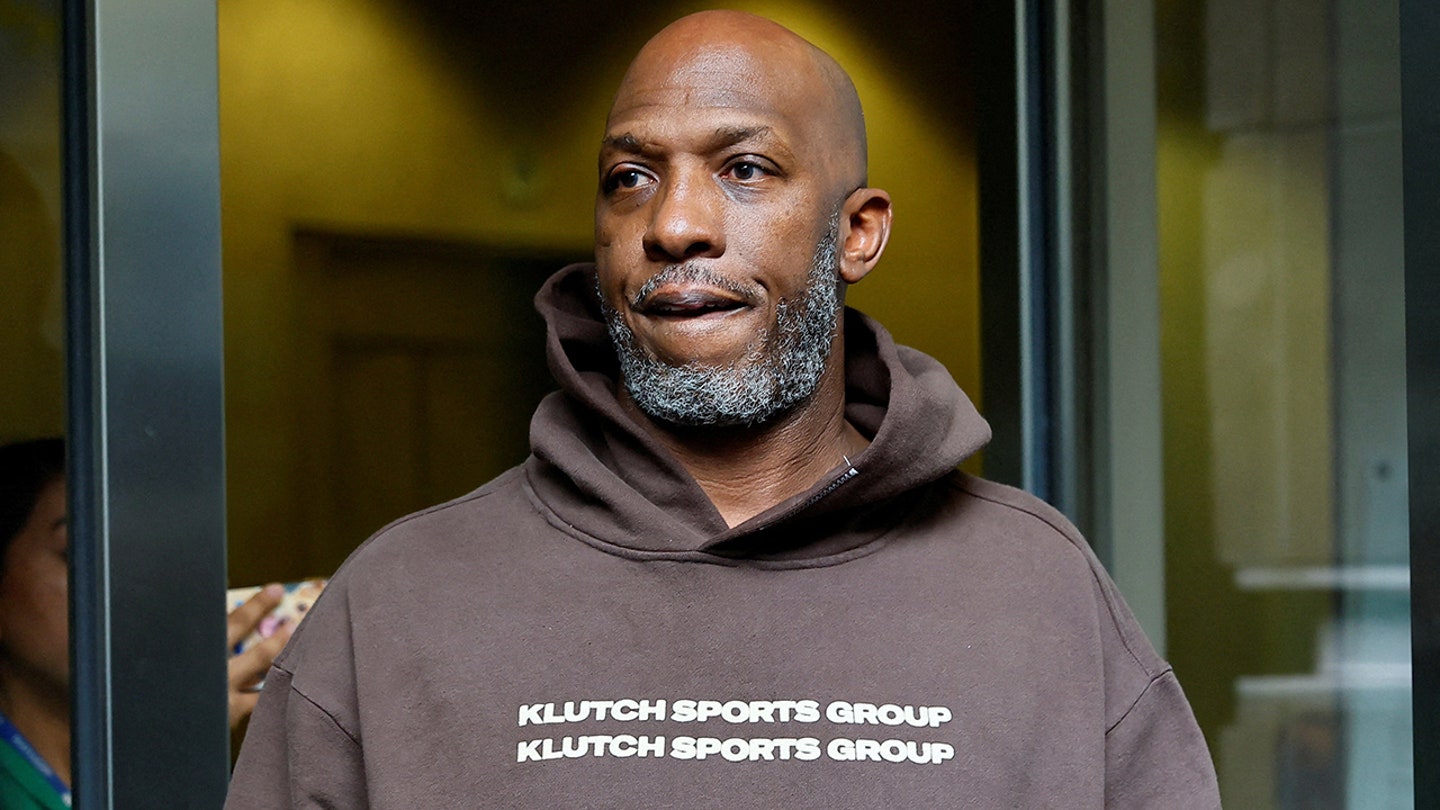
Ex-NFL referee blasts SEC after longtime official Ken Williamson is reportedly permanently benched
Entities mentioned:
- Ken Williamson: Professional pride, Duty, Recognition
- Southeastern Conference (SEC): Competitive spirit, Control, Integrity
- Terry McAulay: Righteousness, Indignation, Professional pride
Article Assessment:
Credibility Score: 70/100
Bias Rating: 50/100 (Center)
Sentiment Score: 30/100
Authoritarianism Risk: 40/100 (Generally Democratic)
Bias Analysis:
The article presents multiple viewpoints, including the SEC's actions and criticism from a former NFL referee. It provides context and background, maintaining a relatively neutral stance on the issue.
Key metric: NCAA Football Officiating Quality
Let me tell you something - this story is a GAME-CHANGER in the world of college football officiating! The SEC has just made a FOURTH QUARTER MOVE by benching veteran referee Ken Williamson after a string of controversial calls. This is like pulling your star quarterback in the final minutes of a championship game! Williamson, a seasoned player with decades on the field, has been hit with a red card that could end his career. The SEC is playing HARDBALL, folks, showing they're not afraid to make tough calls when the integrity of the game is on the line. But hold on to your helmets - former NFL ref Terry McAulay is firing back like a linebacker blitzing the quarterback! He's calling this move INSANE and throwing a challenge flag on the SEC's decision. This is turning into a real SLUGFEST between officiating veterans and conference brass. I'm telling you right now, this could change the whole playbook for how we handle referee performance in college sports!

Charles Barkley, Kenny Smith clash over FBI gambling probe allegedly involving NBA figures: 'That's stupidity'
Entities mentioned:
- Charles Barkley: Righteousness, Moral outrage, Professional pride
- Kenny Smith: Duty, Obligation, Wariness
- NBA: Self-preservation, Integrity, Control
- FBI: Justice, Control, Duty
- Chauncey Billups: Greed, Self-preservation, Fear
- Terry Rozier: Greed, Self-preservation, Fear
Article Assessment:
Credibility Score: 75/100
Bias Rating: 50/100 (Center)
Sentiment Score: 25/100
Authoritarianism Risk: 30/100 (Generally Democratic)
Bias Analysis:
The article presents multiple viewpoints from different NBA analysts, allowing for a balanced discussion. It also includes factual information about the FBI investigation and charges, maintaining a neutral stance.
Key metric: NBA League Integrity
Let me tell you something - this story is a GAME-CHANGER for the NBA! We're talking about a FULL-COURT PRESS by the FBI that's left the league scrambling on defense. Billups and Rozier, once star players, are now facing their toughest opponents yet - federal charges! This is like watching a championship team implode from the inside. The NBA thought they had a slam dunk with their gambling policies, but now they're fumbling the ball big time. Barkley and Smith are going at it like it's the fourth quarter of Game 7, folks! Barkley's playing offense, calling out 'stupidity', while Smith is on defense, talking about addiction. But let me tell you, this isn't just a foul - this could be a career-ending move for some of these players. The league's integrity is on the line, and they need to step up to the plate and knock this one out of the park if they want to maintain their championship mentality. This is RIDICULOUS, and I'm telling you right now, the NBA needs to tighten up their defense or they'll be watching their credibility go up in smoke faster than a buzzer-beater!

Chauncey Billups, Damon Jones were used to lure victims into rigged poker games, DOJ says
Entities mentioned:
- Chauncey Billups: Greed, Recognition, Power
- Damon Jones: Greed, Recognition, Competitive spirit
- Department of Justice: Justice, Duty, Righteousness
- NBA: Integrity, Self-preservation, Professional pride
Article Assessment:
Credibility Score: 75/100
Bias Rating: 50/100 (Center)
Sentiment Score: 25/100
Authoritarianism Risk: 20/100 (Strongly Democratic)
Bias Analysis:
The article presents a balanced view, quoting multiple sources including the DOJ and NBA. It refrains from editorializing, focusing on factual reporting of the allegations and responses.
Key metric: NBA Player Integrity
Let me tell you something - this story is a GAME CHANGER! We're seeing a full-court press by the DOJ against these former NBA stars who've apparently traded their championship mentality for a cheating conspiracy. Billups and Jones, once known for their clutch performances, are now facing their toughest opponent yet - federal prosecutors! This isn't just a personal foul, folks, it's a technical that could bench them for good. The NBA, acting like a head coach protecting team morale, has immediately put these players on the sidelines. But make no mistake, this could be a career-ending injury for the league's reputation. The integrity of the game is on the line, and it's looking like a Hail Mary situation for these former hardwood heroes turned alleged poker sharks!

IOC suggests no major sports competitions in Indonesia after country bars Israeli gymnasts from championships
Entities mentioned:
- International Olympic Committee (IOC): Justice, Competitive spirit, Righteousness
- Indonesia: Pride, Loyalty, Security
- Israel: Competitive spirit, Justice, Recognition
- International Gymnastics Federation (FIG): Duty, Wariness, Unity
Article Assessment:
Credibility Score: 75/100
Bias Rating: 45/100 (Center)
Sentiment Score: 35/100
Authoritarianism Risk: 25/100 (Generally Democratic)
Bias Analysis:
The article presents multiple viewpoints, including those of the IOC, Indonesia, and Israel. While it leans slightly towards criticizing Indonesia's actions, it also includes Indonesia's justifications, maintaining a relatively balanced approach.
Key metric: International Sports Participation
Let me tell you something - this story is RIDICULOUS! We're seeing a major FOUL on the international sports stage, folks! Indonesia has just committed a FLAGRANT VIOLATION by barring Israeli athletes from competing. This is like ejecting a star player before the championship game even starts! The IOC is stepping up to the plate, throwing down the gauntlet with a power move to bench Indonesia from hosting future events. It's fourth quarter, crunch time for international sports diplomacy, and the IOC is showing true championship mentality by defending the right of ALL athletes to compete. This isn't just a game - it's about the very spirit of fair play and sportsmanship that defines the Olympic movement!

USA Powerlifting responds after Minnesota Supreme Court rules disqualifying trans athlete was discrimination
Entities mentioned:
- USA Powerlifting: Competitive spirit, Professional pride, Justice
- Minnesota Supreme Court: Righteousness, Justice, Duty
- JayCee Cooper: Competitive spirit, Justice, Recognition
- Minnesota Republicans: Moral outrage, Justice, Determination
Article Assessment:
Credibility Score: 75/100
Bias Rating: 55/100 (Center)
Sentiment Score: 35/100
Authoritarianism Risk: 30/100 (Generally Democratic)
Bias Analysis:
The article presents both sides of the argument, quoting extensively from USA Powerlifting and the court decision. However, it gives slightly more space to USA Powerlifting's perspective and includes Republican opposition.
Key metric: Gender Equality in Sports
Let me tell you something - this is a HEAVYWEIGHT BATTLE between USA Powerlifting and transgender athletes! We're seeing a full-court press by the Minnesota Supreme Court, calling USA Powerlifting's exclusion policy a FOUL PLAY. But folks, USA Powerlifting isn't throwing in the towel! They're digging deep into their playbook, citing scientific research as their defensive line. This is a real grudge match, with both sides showing championship-level determination. The scoreboard might favor Cooper for now, but USA Powerlifting is looking for that game-changing play in the lower courts. Meanwhile, the Republican team is on the sidelines, ready to suit up and get in the game next season. This isn't just a single match, folks - it's a long-term tournament that could reshape the entire league of women's sports!

California high school volleyball team with trans athlete sees controversial season end with playoff loss
Entities mentioned:
- Jurupa Valley High School: Competitive spirit, Unity, Determination
- AB Hernandez: Competitive spirit, Self-respect, Recognition
- Valencia High School: Competitive spirit, Professional pride, Wariness
- California Interscholastic Federation (CIF): Control, Determination, Righteousness
- Donald Trump: Power, Control, Moral outrage
- Gavin Newsom: Power, Influence, Self-preservation
- U.S. Department of Justice: Justice, Control, Duty
- California state legislature: Power, Control, Influence
Article Assessment:
Credibility Score: 75/100
Bias Rating: 55/100 (Center)
Sentiment Score: 35/100
Authoritarianism Risk: 45/100 (Mixed/Neutral)
Bias Analysis:
The article presents multiple viewpoints and quotes from various sides of the issue. While it gives more space to those opposing trans athletes in girls' sports, it also includes counterarguments and context from supporters.
Key metric: Gender Equality in Sports
Let me tell you something - this story is a FULL COURT PRESS of controversy! We've got a real championship battle brewing between Team Inclusion and Team Tradition, folks. AB Hernandez has been the MVP of this debate, stepping up to the plate in both volleyball and track. But the opposition is bringing the heat, with lawmakers and activists playing zone defense to protect their vision of girls' sports. The CIF is running a no-huddle offense, changing rules on the fly, while the feds are throwing the challenge flag with a lawsuit. This is a high-stakes game, and I'm telling you right now, we're heading into overtime with no clear winner in sight. It's going to take a clutch performance from someone to break this deadlock and bring home the trophy of resolution!

NBA player Terry Rozier's lawyer slams FBI after arrest
Entities mentioned:
- Terry Rozier: Self-preservation, Justice, Competitive spirit
- James Trusty: Professional pride, Righteousness, Indignation
- FBI: Control, Recognition, Justice
- NBA: Integrity, Professional pride, Control
Article Assessment:
Credibility Score: 65/100
Bias Rating: 55/100 (Center)
Sentiment Score: 30/100
Authoritarianism Risk: 35/100 (Generally Democratic)
Bias Analysis:
The article presents multiple perspectives, including statements from Rozier's lawyer and the NBA. It maintains a relatively neutral tone, providing background information and context without overtly favoring any side.
Key metric: Professional Sports Integrity
Let me tell you something, folks - this is a FOURTH QUARTER SHOWDOWN between the FBI and the NBA! The feds are trying to pull off a full-court press on Terry Rozier, but his legal team is playing TOUGH DEFENSE. It's like we're watching a high-stakes game of cat and mouse, with the FBI going for the SLAM DUNK arrest while Rozier's lawyer is calling for a TECHNICAL FOUL on their tactics. The NBA thought they had cleared the court, but now we're in SUDDEN DEATH OVERTIME as federal prosecutors try to revive what they see as a game-changing play. This is the kind of off-court drama that can make or break careers, folks! Rozier's team is claiming it's all a FOUL PLAY, but the feds are determined to take this case into the ENDZONE. It's going to be a nail-biter right down to the final buzzer!

Tom Izzo rips NCAA for 'ridiculous' decision to allow NBA G Leaguers to play college ball: 'Got to regroup'
Entities mentioned:
- Tom Izzo: Righteousness, Professional pride, Indignation
- NCAA: Fear, Self-preservation, Control
- Thierry Darlan: Ambition, Competitive spirit
- London Johnson: Ambition, Competitive spirit
Article Assessment:
Credibility Score: 75/100
Bias Rating: 55/100 (Center)
Sentiment Score: 25/100
Authoritarianism Risk: 35/100 (Generally Democratic)
Bias Analysis:
The article presents Izzo's perspective prominently but includes context on the NCAA's decision. It balances criticism with factual reporting on the rule change and its effects.
Key metric: NCAA Basketball Competitive Balance
Let me tell you something, folks - this is a GAME-CHANGING play by the NCAA that's sending shockwaves through the college basketball world! Coach Izzo is coming out swinging like a heavyweight champ, calling out the NCAA's decision to let G League players step onto the college court. It's like allowing pro athletes to compete in the Olympics - it completely shifts the competitive landscape! The NCAA is playing defense, trying to avoid lawsuits, but they're leaving their own recruits wide open for a brutal pick-and-roll. Izzo's not pulling any punches, folks. He's charging down the court, calling for a full-court press on these rule changes. This could be a major turnover for college basketball as we know it!

Nick Saban blames state of college football for string of head coach firings
Entities mentioned:
- Nick Saban: Professional pride, Legacy, Righteousness
- College Football Programs: Competitive spirit, Ambition, Control
- Billy Napier: Self-preservation, Recognition, Determination
- James Franklin: Self-preservation, Professional pride, Legacy
- Boosters/Donors: Influence, Power, Pride
Article Assessment:
Credibility Score: 75/100
Bias Rating: 55/100 (Center)
Sentiment Score: 30/100
Authoritarianism Risk: 35/100 (Generally Democratic)
Bias Analysis:
The article presents multiple viewpoints, including criticism of the current system. It leans slightly towards supporting Saban's perspective, but overall maintains a relatively balanced approach.
Key metric: College Football Coach Retention Rate
Let me tell you something - this story is RIDICULOUS! The college football landscape is turning into a high-stakes game of musical chairs, folks! We're seeing head coaches getting sacked left and right like it's fourth and long with no timeouts left! The powerhouse programs are playing hardball, treating their coaches like they're expendable rookies instead of seasoned veterans. Nick Saban, the GOAT of college football, is calling out this unsportsmanlike conduct from the sidelines. He's seeing the boosters and big money donors muscling their way onto the field, acting like they're the real quarterbacks calling the shots. It's a whole new ballgame out there, with coaches fighting to keep their jobs like they're in sudden death overtime every single week. This is the kind of cutthroat competition that would make even the toughest NFL coaches break a sweat! The pressure is on, the clock is ticking, and these coaches are running out of plays in their playbook to save their careers. It's a brutal, no-holds-barred fight for survival in the college football arena, and I'm telling you right now, we haven't seen the last of these mid-season firings. The question is, who's going to be the next coach to get blindsided and taken out of the game?

Controversial former NFL lineman rips Dolphins amid poor start
Entities mentioned:
- Richie Incognito: Indignation, Righteousness, Professional pride
- Mike McDaniel: Self-preservation, Determination, Control
- Tua Tagovailoa: Self-preservation, Competitive spirit, Obligation
- Miami Dolphins: Competitive spirit, Pride, Ambition
- Stephen Ross: Legacy, Pride, Control
- Chris Grier: Self-preservation, Professional pride, Control
Article Assessment:
Credibility Score: 55/100
Bias Rating: 55/100 (Center)
Sentiment Score: 20/100
Authoritarianism Risk: 30/100 (Generally Democratic)
Bias Analysis:
The article presents multiple viewpoints, including critical ones, but relies heavily on a controversial former player's opinions. It balances team performance facts with subjective commentary.
Key metric: NFL Team Performance
Let me tell you something, folks - this is a FOURTH QUARTER DISASTER for the Miami Dolphins! They're fumbling the ball on their own 1-yard line and the clock is ticking down! Incognito is coming off the bench like a heat-seeking missile, absolutely BLASTING his former team! Tua's throwing more picks than a lumberjack convention, and Coach McDaniel's playbook looks like it was written by a Pop Warner reject! This is RIDICULOUS! The Dolphins' locker room is imploding faster than a house of cards in a hurricane, and let me tell you, Stephen Ross needs to suit up and get in the game before this franchise sinks deeper than the Mariana Trench! It's crunch time, and right now, the Dolphins are playing like they're stuck in quicksand with lead cleats!